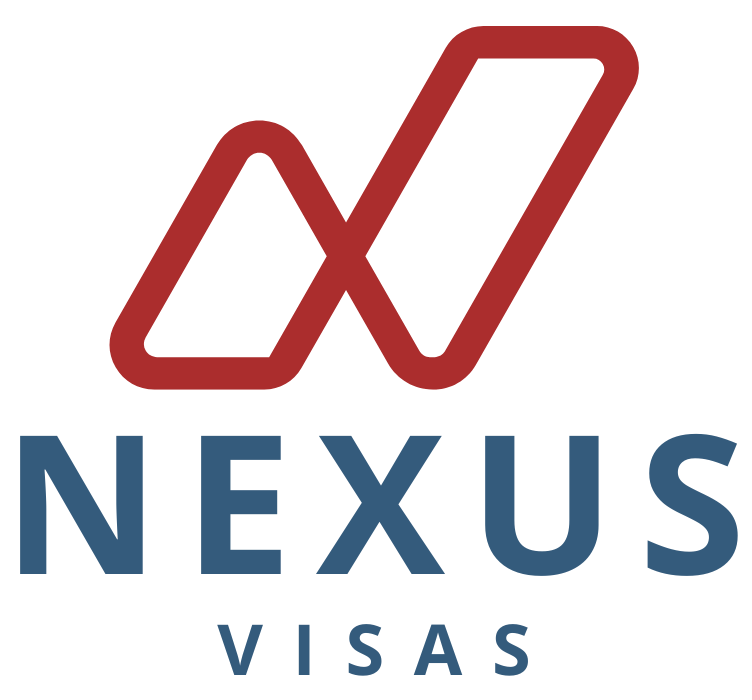
Scale-Up Visa vs Skilled Worker Visa: A Comprehensive Comparison
The Scale-Up Visa and Skilled Worker Visa offer distinct pathways for visa applicants aiming to come to the UK. The UK Scale-Up Visa is tailored for those with a job offer from a UK employer and is designed for scale-up businesses, allowing them to attract talent. To qualify for a scale-up worker visa, the visa holder must meet the English language requirement and the going rate for their occupation. Conversely, the skilled worker route requires a valid certificate of sponsorship and a broader range of professional occupations.
Both visas allow the worker to stay in the UK, with the option to apply for indefinite leave after meeting specific criteria. The worker must have a worker sponsor licence from their UK business to proceed with the worker visa application. The scale-up route benefits companies, enabling them to quickly fill roles critical for growth through a streamlined sponsor licence application. In contrast, the skilled worker visa application follows the standard skilled worker visa route, appealing to more employment opportunities in the UK.
What is a scale-up visa?
The new UK scale-up visa is designed for individuals who wish to work in scale-up companies within the UK. This work visa allows holders to apply for a scale-up sponsor licence if they meet the eligibility requirements. To qualify, applicants must have a job offer from a scale-up sponsor and earn a minimum salary, meeting the PAYE earnings in the UK. This visa is particularly beneficial for those outside the UK seeking employment opportunities.
The UK government aims to attract skilled workers through this new visa, simplifying the UK immigration process. To apply for a scale-up worker visa, candidates must ensure their roles are listed in the appendix as skilled occupations. This visa UK provides a pathway for talented individuals to contribute to the UK economy while complying with immigration regulations. For those already holding a skilled worker visa, transitioning to this new UK scale-up visa could enhance their career prospects.
Understanding the scale-up visa route
Applicants should note that to apply for a new visa, they must have a job offer from a UK scale-up business listed in the Appendix for skilled occupations. Additionally, the job must provide earnings in the UK equivalent to the required threshold, ensuring that scale-up visa holders can thrive while living in the UK. Successful scale-up visa application can lead to invaluable opportunities for professional growth and integration into the UK workforce.
Eligibility requirements for the scale-up visa
Eligibility requirements for the UK scale-up worker visa include meeting the requirements outlined in the appendix for skilled occupations. This worker visa allows individuals to gain employment in the UK with a new sponsor and an experienced worker sponsor licence. Visa applicants must ensure they are eligible for the scale-up by securing a professional job that meets the criteria. Additionally, scale-up visa applicants can remain in the UK for several years and may wish to extend the visa or apply for settlement in the UK.
To qualify, the scale-up worker must be offered a position listed under the UK skilled worker visa framework. Worker visa holders benefit from a streamlined application process, as the visa and scale-up provisions aim to attract talent that can contribute to the UK’s economy. Visa or skilled worker visa holders can transition to this scale-up visa if they adhere to the guidelines set by UK visas and immigration.
How to apply for a scale-up visa
To apply for a scale-up visa, applicants must first ensure they meet the eligibility criteria. This includes holding a job classified under the appendix skilled occupations list, which consists of various skilled jobs available in the UK. Additionally, the visa is open to individuals who have received a job offer from an employer with a valid skilled worker sponsor licence.
It is also essential to demonstrate a certain level of proficiency and experience, typically requiring a minimum of two years in the UK to qualify. By following these steps, candidates can successfully navigate the application process for the scale-up visa.
What is a skilled worker visa?
A skilled worker visa is a type of immigration permission that allows individuals to live and work in the UK. This visa is designed for those who have received a job offer from an approved employer, ensuring the UK can attract talented professionals worldwide. To qualify for a skilled worker visa, applicants must meet certain criteria, including having a specific skill level and a minimum salary threshold. This initiative supports the UK economy by filling labour shortages in various sectors.
Key features of the skilled worker visa
Offered in the UK, the Skilled Worker Visa allows international professionals to work in various sectors, provided they have a job offer from a UK employer. Applicants must meet specific requirements, including a minimum salary threshold and English language proficiency. The visa is typically valid for up to five years, with options for renewal and eventual settlement. The employer must hold a valid sponsorship license, ensuring compliance with immigration regulations. This visa attracts skilled talent, supports the UK economy, and addresses labour shortages in critical industries.
Eligibility requirements for the skilled worker visa
Applicants must meet specific eligibility requirements to qualify for the skilled worker visa. Firstly, they must have a job offer from an approved employer in the UK who is willing to sponsor their application. Additionally, candidates must demonstrate that their job meets the required skill level and offers a minimum salary threshold, which varies depending on the occupation. Furthermore, applicants must possess sufficient English language proficiency and provide evidence of their qualifications and experience related to the job offered.
How to apply for a skilled worker
To apply for a skilled worker visa, determine your eligibility based on your profession and experience. Research the occupational shortages in the desired country, as this can enhance your chances of approval. Next, gather the necessary documentation, including proof of qualifications, work experience, and a valid job offer from an eligible employer. Once your documents are ready, complete the online application form and pay the required fees. Finally, attend an interview if requested and await the decision on your visa application.
What are the main differences between a scale-up and a skilled worker visa?
The Scale-up visa and Skilled Worker visa cater to different categories of migrants. The Scale-up visa targets individuals with high-level skills recruited by fast-growing companies, allowing them to contribute to innovative sectors. In contrast, the Skilled Worker visa is designed for a broader range of skilled professions, requiring a job offer from an approved employer. Both visas can lead to indefinite leave to remain, but the pathways differ, with the Scale-up visa focusing on highly skilled roles in dynamic environments.
Another critical distinction is in the eligibility criteria; the Scale-up visa emphasizes the need for a higher salary threshold and specific growth metrics of the sponsoring employer. Meanwhile, the Skilled Worker visa includes a broader array of eligible roles, making it more accessible for professionals. These differences reflect the UK’s aim to attract diverse talent while fostering economic growth through innovation.
Comparison of visa requirements
When travelling internationally, understanding visa requirements is crucial. Different countries have varying regulations, which can affect your travel plans significantly. For instance, some nations offer visa-free entry for citizens of certain countries, while others may require a formal application process. Additionally, the duration of stay permitted under a visa can differ widely, with some allowing only short visits and others accommodating longer stays. Moreover, it’s essential to consider the documentation needed, as some countries may demand proof of financial stability or onward travel plans before granting entry.
Salary requirements for both visas
When applying for a work visa, understanding salary requirements is crucial. Each visa category has specific minimum salary thresholds that must be met to ensure compliance with immigration regulations. For example, the H-1B visa requires employers to offer a wage that meets or exceeds the prevailing wage. Similarly, the EB-2 visa mandates that applicants demonstrate a salary reflecting their education and experience. Meeting these salary criteria is essential for a successful visa application and helps prevent the exploitation of foreign workers.
How do you secure a sponsor for each visa?
Securing a sponsor for each visa involves thorough research and preparation. First, identify potential sponsors that align with your qualifications and goals. Networking within your field, attending industry events, and utilizing online platforms can help establish valuable connections.
Next, prepare a compelling application highlighting your skills and experience, demonstrating why you would be an asset to the sponsor. Tailor your approach to each sponsor, showcasing how your objectives align with their interests.
Finally, maintain open communication with potential sponsors, addressing any questions they may have. Building a solid relationship can significantly improve your chances of securing the necessary sponsorship for your visa.
Finding a scale-up sponsor
Finding a scale-up sponsor can be a pivotal step in accelerating business growth. First, identify potential sponsors who align with your company’s values and vision. Look for organizations that have a history of supporting startups and entrepreneurs. Networking events, industry conferences, and online platforms can be excellent resources for making connections.
Once you’ve identified potential sponsors, prepare a compelling pitch articulating your business model and growth potential. Highlight how their support can create a mutually beneficial partnership. Follow up with personalized communication to reinforce your interest and commitment.
What is the application process for each visa?
The application process for student visas typically begins with obtaining an acceptance letter from an accredited educational institution. After this, applicants must gather the required documentation, including proof of financial means and health insurance. The next step is applying online or at a consulate, then scheduling and attending an interview.
The process often requires a job offer from a sponsoring employer for work visas. The employer must submit a petition on behalf of the applicant, demonstrating the need for foreign labour. Once approved, applicants can apply through the appropriate channels, providing the necessary documentation.
Tourist visas generally involve filling out an application form, providing travel itineraries, and presenting proof of financial stability. The process may include an interview and biometric data collection, depending on the country’s requirements.
Steps to apply for a skilled worker
- Research the specific requirements for the skilled worker visa in your desired country. Each nation has different criteria, including job offers, qualifications, and language proficiency.
- Next, gather all necessary documents, such as proof of employment, educational certificates, and language test results. Ensure that these documents are translated if required.
- After preparing your documents, submit your application through the appropriate immigration portal or agency. Be ready to pay any application fees and provide biometric data if necessary.
- Finally, follow up on your application status and be prepared for potential interviews or additional requests for information from immigration authorities.
Steps to apply for a scale-up visa
- To apply for a scale-up visa, you must first check your eligibility. Ensure you are endorsed by an approved scale-up company that meets specific criteria, such as demonstrating rapid growth.
- Next, gather the necessary documents, including proof of employment and evidence of your endorsement.
- Once your documents are ready, complete the online application form on the UK government’s official website. Pay the application fee and submit your biometrics at a local visa application centre.
- Finally, wait for a decision, which typically takes a few weeks.
What are the long-term benefits of each visa?
The long-term benefits of each visa vary significantly depending on individual circumstances and immigration goals. For instance, a work visa can provide stable employment opportunities, aiding in career growth and financial stability, which can outweigh the initial visa application fee. Meanwhile, family reunification visas promote stronger family ties and emotional support networks, contributing to overall well-being and social integration. Additionally, student visas can enhance educational qualifications, opening doors to diverse job prospects and ultimately proving valuable in the long run.
Moreover, permanent residency visas allow individuals to secure their status in a country, granting access to social services, healthcare, and public benefits that can further enhance their quality of life. In contrast, investor visas enable foreign nationals to contribute to the local economy, potentially leading to lucrative business opportunities and long-term financial gains. Each visa type serves as a strategic pathway, providing unique advantages beyond the initial costs associated with the visa application fee.
CONTACT US
Contact us using our contact form by selecting a service from the drop down list below.






